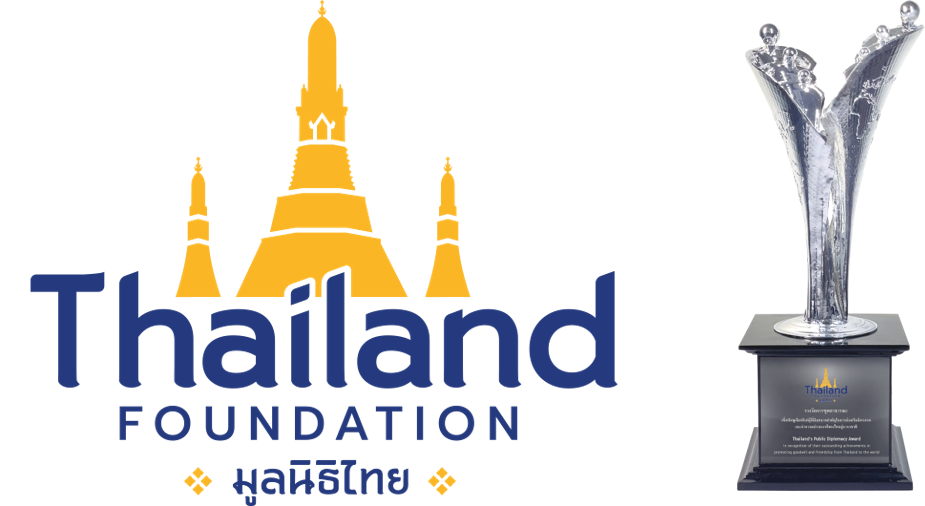On World Mental Health Day October 10th, Know the Buddha’s Advice on Achieving Mental Health
On morning of 8 October 2022, I read Psychologytoday.com, as I always do. But this time I was more happy to have read the article “Turning from Depression to the Light of Hope, A call to action on World Mental Health Day,” written by Diane E Dreher, Ph.D. who calls for more awareness and action on importance of mental health, October 10th. And I would like to support her by sharing here the Buddha’s advice on achieving mental health.
Mental health is defined by World Health Organization (WHO) as the state of well-being where every individual realizes his or her own potential, manages the normal stresses of life, works productively and fruitfully, and can contribute to his or her community. The Buddha’s advice helps one realize this.
Buddhism, established by the Gautama Buddha or Buddha in the sixth century BCE, has some useful advice on mental health.

Many of the Buddha’s teachings contain advices on how to cultivate mental well-being – up to the point of the very end of suffering (photo credit: https://yhoo.it/3CIcbv3)
The Buddha is quoted by P. A. Payutto, Thailand’s most famous scholar Buddhist monk, to have shared many verses on developing mental health. For example, he said:
“Grief neither brings back what is past and gone, nor brings forth happiness yet to come.”
“Do not dwell on the past or hanker for the future. Live in the present moment.”
“A man should cling to his hope; a wise man should not be discouraged; I have realized this for myself – whatever I desire I obtain.”
“A wise man, even when confronted with misery, never gives up the hope to find happiness.”
“Taming the mind to be effective is good.”
“A tamed mind brings happiness.”
Taming the mind here means meditation or mental concentration.
A. Payutto elaborates on the Buddha’s points in his book Buddhadhamma (read more on pp. 1780 – 1783 here) that meditation reduces stress, anxiety, and depression. It also brings about happiness, joy, mental relaxation, inner peace, tranquility, discernment, inner strength, resilience, vigor, cool-headedness, loving-kindness, and compassion, while also relaxing the body. P. A. Payutto mentions in the same book that meditation promotes physical health and aids in curing illness. The mind and body are interdependent and have a bearing on one another. When ordinary people have a physical illness, their mind, too, tends to become weak and depressed; and when a person is discouraged, the illness often worsens. Even when the body is healthy, if people encounter an intensely upsetting situation, they may fall ill. On the other hand, when individuals whose minds are strong have a physical illness, only the body is unwell; the mind remains at ease. Moreover, such persons can use this strong and contented mind to alleviate the healing process. They can also use the power of concentration to reduce physical pain.
Modern scientific studies agree that there is a relationship between mental and physical health. For example, it has been discovered that depression doesn’t just impact mood and motivation. It can directly affect the immune system by suppressing T-cell responses to viruses and bacteria, making it easier to get sick and stay sick for longer. A weakened immune system can lead to a jump in the severity of allergies or asthma. A weakened immune system may cause depression. Stress — especially the chronic type — triggers an immune response within the brain itself.
To strengthen the mind to be able to withstand negative feelings and to boost feeling positive, the Buddha recommended meditation, which is to the mind what aerobic exercise is to the body. Like exercise, there are many good ways to meditate, and you can find a meditation style that suits you best. A 5-minute meditation session alone enhances both mental state attribution and empathic concern, a 10-minute meditation session may help reduce anxiety, and a 20-minute meditation can reduce anger.
Even children should practice meditation. Constance Scharff Ph.D. writes in article Three Activities to Improve Mental Well-being in Youth that studies in children indicate similar positive results. Children who learn to meditate have better emotional regulation than nonmeditators; they are able to deal with difficult emotions in more positive ways than children who do not meditate.
Children who meditate are also less likely to self-harm or have suicidal ideation than their nonmeditating peers. Overall, meditation allows children to face difficult situations with greater calm and more easily deal with emotional volatility than those who do not meditate. Additionally, creating what may become a lifelong meditation practice could have significant positive health benefits over the course of a child’s life.

(Photo credit: https://bit.ly/3tEjzmC)
How to Meditate
Find a good spot. Location can influence your ability to meditate properly. Above all, choose a place where you feel comfortable. The less distracting and quieter the location is, the better.
You may sit in a chair or bed or on the ground, but sitting with your legs crossed and your back straight is best. Buddhists believe that erect posture strengthens the connection between mind and body. Relax while maintaining good posture. Then close your eyes and accept all sensations as they filter through you. Don’t judge them, but rather, focus on your breathing. If you get distracted, gently guide yourself back to the sound and rhythm of your own breathing. The aim is to achieve active and focused moment-by-moment awareness of your present experience. (Read more here.)

(Photo credit: https://bit.ly/3NjHL5H)
How Often and How Long One Should Meditate
Ideally, meditation should be practiced daily. The duration, however, varies, depending on the source studying the effects of meditation. Some sources recommend at least ten minutes each day, while saying that a half an hour each day would be closer to ideal. Some sources recommend that beginners start with five minutes of meditation per day; then, as the mind gets used to the practice, they could increase the time span by a minute or two each day, aiming for a 15-minute practice after a week.
Some sources, such as Mindfulness in Plain English by Bhante Gunaratana, advise beginners to start with twenty to thirty minutes in their first sessions and gradually extend to an hour after a year. Others, such as Madhuleena Roy Chowdhury, writing in Positive Psychology, suggest that even two minutes per day can be enough for somebody just starting.
Longer sessions appear to increase the benefits of meditation. Research shows that a session of 27 minutes of Mindfulness Meditation may lead to structural changes in key areas of the brain, such as in the hippocampus, the posterior cingulate cortex, the temporo-parietal junction, and the cerebellum, which are involved in learning and memory, emotion regulation, the sense of self, and perspective-taking.

(Photo credit: https://bit.ly/3DmgU4i)
Where to Study Buddhism and Meditation in Thailand
Nowadays one can practice meditation almost everywhere in the world using readily available resources, even YouTube. However, even better, one might argue, are practices in Thailand, where there are many temples and meditation centers offering the study of Buddhism and meditation at the same time. Over a hundred temples offer such experiences. Forest monasteries often provide free meditation lessons, including free room and board. However, not many temples provide instruction in both Thai and English. The list below shows where it may be possible to study both Buddhism and meditation in English:
- Wat Mahathat (Section 5, วัดมหาธาตุยุวราชรังสฤษฎิ์ คณะ 5), in Bangkok. Tel.: 02-2226011, http://www.watmahathat.com/vipassana-meditation/ (The website is a Thai/English bilingual.)
- Wat Phra Dhammakaya (วัดพระธรรมกาย), in Pathum Thani Province, north of Bangkok, https://en.dhammakaya.net/ (The website is in English.)
- Wat Phra Dhatu Sri Chomtong Voravihara (วัดพระธาตุศรีจอมทองวรวิหาร), in Chiang Mai Province, tel.: 053-342186, https://www.watchomtong.com (The website is in Thai only.)
- Wat Phra That Doi Suthep (วัดพระธาตุดอยสุเทพราชวรวิหาร), in Chiang Mai Province, tel.: 053-295912.
- Wat Bhaddanta Asabharam (วัดภัททันตะอาสภาราม), in Chon Buri Province, tel.: 086-8198358, https://www.watbhaddanta.com/ (The website is in Thai only).
- Wat Umong (วัดอุโมงค์ สวนพุทธธรรม), in Chiang Mai Province, tel.: 085 033 3809. Email: [email protected].
- Wat Pah Nanachat (International Forest Monastery วัดป่านานาชาติ), in Ubon Rachathani Province, https://bit.ly/3perzqx (The website is in English). (Photo credit: https://bit.ly/3fZr8MO)
- Wat Pha Tam Wua (วัดป่าถ้ำวัว), in Mae Hong Son Province, tel.: 081 031 3326 https://www.wattamwua.com/contact/
- The Young Buddhists Association of Thailand (YBAT) – Under Royal Patronage, Bangkok, tel.: 0 2455 2525. Website: www.ybat.org/eng/
- Wat Nong Pah Pong in Ubon Ratchathani Province, which was established by the late Venerable Ajahn Chah Subhaddo in 1954, tel. 0 4532 2729, http://watnongpahpong.org/indexe.php

A woman practicing mindfulness meditation (photo credit: https://bit.ly/36P45TD)
I wish for good mental health for you. May you be able to have equanimity through experiences of gain and loss, popularity and unpopularity, blame and praise, and happiness and suffering. Practice patience and endure the onslaughts of worldly vicissitudes by way of meditation so that the vicissitudes are managed and gradually eradicated. Good and bad go together. Understanding this, you are sure to be happier and better able to realize your own potential, work productively and fruitfully, and contribute to your community, whether or not it is World Mental Health Day.
Major references:
- Mahtab Alam Quddusi. Importance of Good Health in Our Life – How can We Achieve Good Health and Well Being? at https://bit.ly/3tDEsyj
- P. A. Payutto. The Nectar of Truth, A Selection of Buddhist Aphorisms at https://bit.ly/3ILzELw
- P. A. Payutto. Buddhadhamma: The Law of Natures and Their Benefits to Life at https://bit.ly/3DaxILv
____________________________________________________________________________________________________________________
 Author: Paitoon Songkaeo, Ph.D.
Author: Paitoon Songkaeo, Ph.D.
Transitioning from a Buddhist monk to a diplomat, Paitoon Songkaeo is the Administrative Director of the Thailand Foundation. With a background of 16 years as a Buddhist monk, he later joined the Ministry of Foreign Affairs and retired as the Consul-General of Kota Baru in Malaysia in 2017. Additionally, he is a regular contributor to the Spiritual Values & Meditation section.
Uploaded on October 9, 2022


